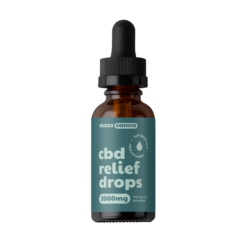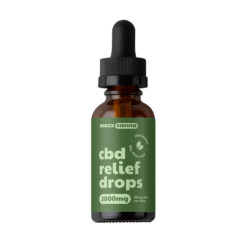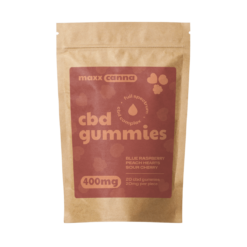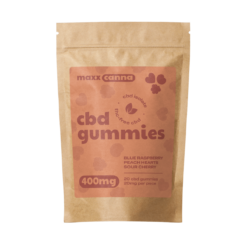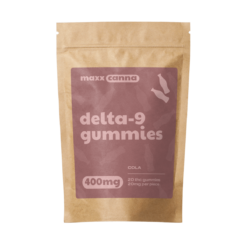Delta 8 and Delta 9 have become known as significant cannabinoids, and understanding their differences is essential for making well-informed choices. This blog tries to offer a thorough explanation of Delta 8 and Delta 9, including its effects, advantages, legal status, and safety concerns.
Delta 8 and Delta 9 are two cannabinoids that have gotten a lot of interest because of their unique characteristics. By studying their differences, you can gain insights into their impact on the body and make sound choices regarding their use.
It is necessary to understand the properties of Delta 8 and Delta 9. Individuals can use this knowledge to select which cannabinoid best suits their requirements, tastes, and legal frameworks. We can navigate by studying the differences between these compounds.
Delta 8 vs Delta 9
Delta 8 and Delta 9 are two distinct forms of tetrahydrocannabinol (THC) in the cannabis plant. Although they share similarities, they possess unique characteristics.
Delta 8
Delta 8, also called Delta-8-tetrahydrocannabinol, is a cannabinoid found in cannabis plants in small amounts. It is structurally similar to Delta 9 THC, but with one minor difference: it has a double bond on the 8th carbon chain rather than the 9th. Delta 8 is primarily extracted from hemp and then concentrated using a process known as isomerization. This enables the manufacture of higher-potency Delta 8 THC compounds.
Delta 9
Delta 9 THC, also known as Delta-9-tetrahydrocannabinol, on the other hand, is the principal psychoactive component present in cannabis. It is responsible for the widely recognized euphoric and intoxicated effects of marijuana consumption. Delta 9 THC is the most generally identified molecule with psychoactive properties.
Key Differences between Delta 8 and Delta 9
Chemical structure and composition:
The chemical structures of Delta 8 and Delta 9 vary, with Delta 8 having a double bond on the 8th carbon chain and Delta 9 having it on the 9th carbon chain. This little structural difference impacts their effects on the body.
Psychoactive effects:
Delta 9 THC is well-known for its powerful psychoactive qualities, frequently resulting in a “high” or euphoric sense. Delta 8 THC, conversely, is said to produce a gentler psychoactive experience, with some users characterizing it as a more balanced and less powerful impact.
Medical and therapeutic properties:
Delta 8 and Delta 9 are known to have possible therapeutic effects such as pain alleviation, appetite stimulation, and nausea relief. However, research on Delta 8’s medicinal qualities is still in its early stages.
Legal status and regulations
The legal status of Delta 8 and Delta 9 THC varies by jurisdiction. Delta 9 THC is a prohibited drug in several countries, including the United States, where it is illegal under federal law. However, the legal status of Delta 8 THC is open to interpretation, and legislation may differ.
Effects of Delta 8 and Delta 9
Overview of Delta 8
Delta 8 THC is well-known for its intoxicating effects, often less potent than those of Delta 9 THC. Users frequently report a relaxing and uplifting experience, reduced anxiety and improved attention. However, keep in mind that individual reactions may differ.
Safety Considerations of Delta 8
Delta 8 THC is typically well accepted. It is essential to be aware of potential adverse effects. Dry mouth, burning eyes, raised heart rate, and temporary memory impairment are some of the most reported adverse effects. Start with a modest dose and progressively assess personal tolerance.
Overview of Delta 9
Delta 9 THC is well known for its powerful psychedelic qualities. Many users describe improved sensory experiences. Delta 9 THC may also have medicinal benefits such as pain relief and hunger stimulation.
Safety Considerations Delta 9
Delta 9 THC has the potential to be more psychotropic than Delta 8 THC. This can result in anxiety, paranoia, a high heart rate, and decreased coordination. It is crucial to properly approach Delta 9 THC use properly, keeping personal tolerance and potential harmful responses in mind.
Here is a table for your easy understanding:
| Delta 8 THC | Delta 9 THC | |
| Effects | Mild psychoactive effects | Potent psychoactive effects |
| Calming and uplifting sensation | Euphoria, relaxation | |
| Reduced anxiety, enhanced focus | Altered perception of time | |
| Heightened sensory experiences | ||
| Benefits | Potential therapeutic effects | Potential therapeutic effects |
| (pain relief, appetite stimulation) | (pain relief, appetite stimulation) | |
| Safety | Generally well-tolerated | Stronger psychoactive effects |
| Considerations | Dry mouth, red eyes, increased heart rate, temporary memory impairment | Anxiety, paranoia, rapid heart rate, impaired coordination |
Legality and Safety of Delta 8 and Delta 9
Delta 8 THC’s legal status varies from one jurisdiction to another. While some nations consider it lawful, others impose certain limits and prohibitions. Before purchasing or using Delta 8 THC, users must understand the applicable local laws and regulations.
Delta 9 THC is a restricted drug in several nations, including the United States. This implies that its ownership, distribution, and usage may result in legal consequences. Several areas and countries have passed regulations that allow for the medical and recreational use of Delta 9 THC. These laws may involve obligations such as acquiring certification.
There are a few things to remember regarding the safety of consuming Delta 8 and Delta 9 THC products. It is essential to prioritize safety by purchasing items from reliable providers. This assures that the things have passed quality control processes and have been assessed for purity and efficacy.
Following approved dose recommendations is also necessary for avoiding any possible dangers or adverse effects. Because different people have different tolerances, it’s best to start with a small amount and gradually increase if necessary.
Choosing Between Delta 8 and Delta 9
When deciding between Delta 8 and Delta 9 THC, several factors should be considered:
Desired effects and purposes of use:
Delta 8 THC has been recognized for having a lesser intoxicating effect than Delta 9 THC. Delta 8 may be a better alternative if you like a balanced and less strong impact. Delta 9 THC may be better suited for your needs if you want robust and prominent psychoactive effects.
Legal and accessibility considerations:
Check the legal status and accessibility of Delta 8 and Delta 9 THC in your area. Because laws and regulations differ, it is essential to guarantee compliance to avoid legal issues. Keep up to date on the specific rules and restrictions that apply to these structures in your area.
Personal preferences and sensitivities:
Consider your preferences, tolerances, and sensitivities. Because everyone’s body reacts differently to cannabinoids, what works well for one individual might not work well for another. Take note of how your body reacts.
Delta 8 and Delta 9: Potential Medical Applications
Preliminary studies show these compounds may provide advantages in pain management, nausea alleviation, and hunger stimulation. Understanding the therapeutic potential of Delta 8 and Delta 9 THC can give important insights to people looking for alternative treatment choices.
Pain Relief: Delta 8 and Delta 9 THC have shown potential for pain relief. These cannabinoids interact with the body’s endocannabinoid system, which regulates pain perception. According to research, Delta 9 THC may help relieve chronic pain linked with illnesses such as multiple sclerosis and neuropathic pain. Delta 8 THC, while less studied, may also have analgesic effects and provide pain relief.
Nausea Relief: Delta 9 THC has long been recognized for its antiemetic qualities, making it practical for nausea and vomiting, particularly in cancer patients undergoing chemotherapy. According to research, Delta 8 THC may have similar antiemetic properties to Delta 9 THC, making it a more acceptable and less euphoric option.
Appetite Stimulation: Hunger Stimulation: Another possible therapeutic use of Delta 8 and Delta 9 THC is hunger stimulation. Both cannabinoids have been linked to increased hunger, sometimes known as “the munchies.” Individuals experiencing appetite loss due to medical diseases or treatments, such as cancer or HIV/AIDS, may benefit from this effect.
Potential Future Research Directions: While Delta 9 THC has received greater attention in the scientific world, Delta 8 THC is gaining pace. More study is needed to fully understand cannabinoids’ therapeutic potential, including appropriate doses, long-term effects, and potential interactions with other drugs. Also, researching the synergistic effects of Delta 8 and Delta 9 THC with other cannabinoids, such as CBD, might bring further medicinal advantages.
Conclusion
In conclusion, regarding cannabis consumption, you must understand the differences between Delta 8 and Delta 9. These substances have unique characteristics, impacts, and legal implications. However, while deciding which one to use, it is necessary to prioritize individual tastes and demands. By putting safety first, ensuring product quality, and adhering to local regulations, you can create a positive and responsible cannabis experience. Remember that Delta 8 and Delta 9 have different effects; your tastes will help you decide which is best for you.

